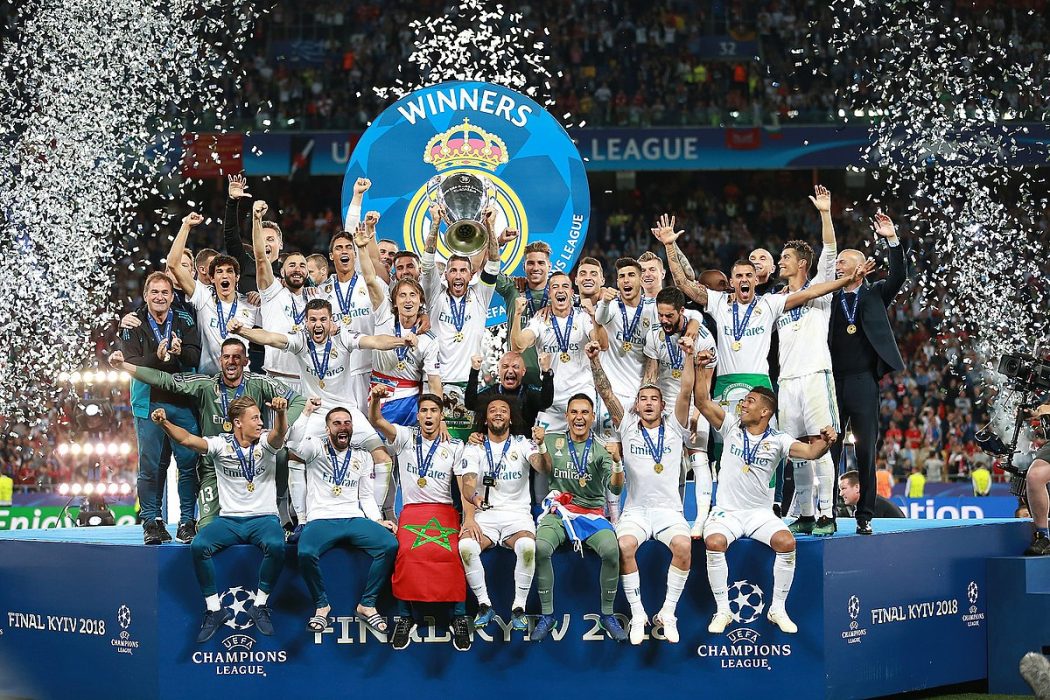In the summer of 2017, Paris Saint-Germain Football Club (PSG) signed Brazilian superstar Neymar for 222 million euros, the highest price tag ever registered for a football player. Now, although PSG has won four championships and nine domestic cups since his arrival, they have yet to win the Champions League, the most prestigious cup in Europe. Whether or not money can win games is a recurring and delicate debate in modern football.
Although football clubs as a whole have benefited from increased revenues, there are still large budget disparities between competing clubs. Performances will disproportionately favor the richer club when the difference of revenue is too large. Money allows teams to attract premier talents, develop superior infrastructure, and ameliorate their academy to develop young players. Take the difference between total values of the first and last place teams in French Ligue 1. The total value of PSG is estimated to be 890.35 million euros, whereas that of Ajaccio’s is 26.65 million euros. PSG has won the French championship seven times in the last nine years, while Ajaccio is struggling mightily upon their return from division two. Money will win football games if the difference in budget is extreme. But what about when the gap is smaller?
The Italian League and English Premier League have seen competitive parity among its top clubs who constantly come in around the same payroll. Market value of top Italian sides has been stable over the past few years and the league has found a new competitive balance. The Italian Championship had been dominated by Juventus of Turin before the 2019-20 season. Yet, the Italian sides have since then improved considerably with Inter Milan led by Antonio Conte winning the 2021-22 season. The following year, the other Milan side won the League, confirming the end of Juventus dominance. The English Premier League clubs known as the “Big 6” have dominated the past ten years. They finish in the top six almost every year and battle for both first place and the top four synonymous with a qualification for the next Champions League campaign. These clubs are amongst the richest clubs in the Premier League with their average value being approximately equal to the sum of the other fourteen clubs. The values of the “Big 6” range from 2.130 billion pounds to 3.476 billion pounds, whereas the 7th highest valued club has only a value of 392 million pounds. Since 2010, the Premier League has had five different champions, four from the “Big 6”. The competition is so intense for the Premier League that in the 2021/22 season Manchester City won the League by just one point over Liverpool. There is greater parity when the overall market value of clubs is similar and clubs compete for championships with a high number of games, like in today’s English Premier League and Italian League.
The famous case of the 2015/2016 Leicester team likewise contradicts the argument that money can buy championships. Leicester has never been a historic English Premier League team. They finished fourteenth during the 2014/2015 season and the market value of their squad was significantly less than those of the “Big 6”. But, after thirty-eight games in one of the most prestigious leagues in the world, Leicester had finished first, completing one of the most unexpected underdog stories in sports history. Their Premier League championship is in large part due to their scout, Steve Welsh. He was able to find players unknown to the general public whose consistent performance over the season shocked many. Jamie Vardy, their top scorer that season, played in Division Five only four seasons prior to winning the League with Leicester. N’golo Kanté was also playing in the lower divisions in France a couple years prior. Their players’ lack of experience did not prevent them from seeing unprecedented success. Although Manchester City has won the League numerous times in the past few years, the David versus Goliath story still remains possible for teams. This incredible story proves that finding underappreciated players on a budget can lead to a championship.
Factors other than money affect on-field performance. The competition that tests the best teams in Europe is the Champions League. In order to win it, a team has to make top two out of four in the group stages and then complete the knock-out stage with fifteen other teams. PSG and Manchester City are two examples of teams that have invested inordinate sums of money to try to win the “Holy Grail” who’ve ultimately come up short. Manchester City spent a staggering 1.1 billion dollars to assemble their current squad but have struggled in the Champions League. Likewise, PSG spent a fortune to attract Neymar Jr, Mbappé and other world class players but have failed to win the Champions League since Qatar Sports Investment bought them in 2011.
Player stability, coaching, and experience is crucial. Real Madrid’s recent Champions League victory demonstrates the value of these unquantifiable assets. Real Madrid have now won 14 Champions Leagues and the road to the supreme trophy this past season was somewhat impressive. After finishing first in their group, the Spanish side eliminated PSG, Chelsea, Manchester City and Liverpool in very close matches. The longevity of their squad was a principal key to their success. They had not been a team particularly active in the transfer windows in the past years and still rely on their older tenured players. In the past three transfer windows, Real Madrid has maintained a positive net transfer balance, meaning the value of their departures exceeds the value of its purchases. The intrinsic talents of all their players is not especially better than those of the teams they beat in the knock-out stages of the Champions League. Chemistry and historical edge are sometimes more important than the talent of the squad. At Real Madrid players have been playing at the club for several years together. Their midfield, composed of Kroos, Casemiro and Modric, have played together since 2014. This chemistry development between players is non-negligeable. They also have an edge over other less experienced clubs like PSG because they’ve won the Champions League thirteen times before. Their current success could be derived from the fact that they are better coached mentally, have a better overall club structure, or benefit from their ample experience to see what has and has not worked for them. Real Madrid has shown during this campaign that mental resilience wins football matches. They were behind in most of their games but managed to come back when no one expected them to. This mental strength has been a great asset in their Champions League campaign, surely something they gained from mental preparedness, club structure, or even overall club experience.
PSG, on the contrary, have attracted some of the best forwards in the world in Neymar Jr and Mbappé. The duo has failed to win the Champions League and their often tenuous relationship has made headlines. PSG has also seen a lot of manager and squad turnover with seven different coaches since 2011. Before the start of this season, PSG changed coach and general manager, saw the arrival of nineteen players, and parted ways with an astonishing twenty-nine players. This high turnover over the seasons has prevented the team from developing an effective chemistry. PSG often dominates their opponents only to lose the lead in the dying moments of the game. This likely derives from their lack of experience and mental unreadiness on the big stage. PSG and Manchester City have already disputed a Champions League final, which they unfortunately lost. For them to win they must have fortitude and patience. These are difficult to develop when their team board demands victory now. In addition, the high expectations of PSG supporters and extensive media coverage augments players’ stress levels and makes it harder to focus on just football.
Money typically wins games when the budget differential is substantial, especially over the course of a season. Yet, Leicester City has shown us that much poorer teams can see success when they attract underappreciated and cheaper players. When the budget differential is slimmer, competition becomes more intense and the outcome of the game more unpredictable, like in the Italian League and the Premier League’s “Big 6.” Real Madrid’s recent Champions League victory over PSG and Manchester City likewise demonstrates that factors apart from money lead to success. As PSG and Manchester City continue their success at the domestic level, we will see how far they make it in this year’s Champions League.


